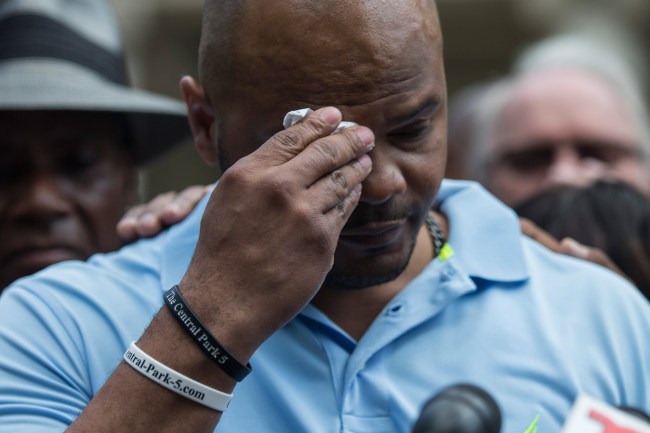On January 24th, by unanimous vote, Congress did something good for documentary filmmakers. Passed the Protection of Reporters from Exploitative State Espionage Act (also known as the Press Act). This is a bill to protect journalists, but it could just as easily be called the “Protecting All Documentary Makers Act.”
The reason PRESS does not mention documentary filmmakers is due to the assumption that federal courts have uniformly included documentary filmmakers in their definitions of journalists. However, documentary makers may be among the biggest beneficiaries of this bill.
The Press Act prohibits the federal government from forcing documentary filmmakers to hand over outtakes, except in limited circumstances, such as to prevent terrorism or imminent violence. The bill protects the identity of sources, as well as the content of records, communications, and information obtained or created in the course of their work.
Among other things, this prevents technology providers from spying on documentarians by explicitly restricting the use of telephone, email, or other telecommunications providers to access journalists' communications. .
The House's passage of the bill, co-sponsored by 10 Democrats and 10 Republicans, is a sign of hope. However, before this can happen, the legislation must pass the Senate.
The Senate has not yet proposed or introduced any version of the Press Act this year, but Sen. Ron Wyden (D-Ore.) is co-sponsoring the 2023 version with Senate Judiciary Chairman Richard J. Durbin (D-Ill.) introduced. Sen. Lindsey Graham (R-South Carolina). The Senate's 2023 bill has the same language as the House 2024 bill, suggesting there will be no significant increases. But it remains to be seen how that will be affected by lobbying, political pressure, or by certain member states wishing to remove provisions that include broad language protecting “journalists” and significant protections for governments. do not have.
It's not an abstract possibility that the government wants outtakes and source material from documentary filmmakers. Our law firm, Donaldson Kalife Perez LLP, has twice participated pro bono in filing court briefs in support of filmmakers. We argued that reporter's privilege also extended to filmmakers, protecting their outtakes and sources.
The first case concerns Ken and Sarah Burns' 2012 documentary “Central Park Five,” which contests civil lawsuits brought by five wrongfully convicted (and later pardoned) people. New York City asked for Sarah's interviews and outtakes. A rape and murder case that occurred in New York's Central Park. The Burns case was prevalent because of state laws regarding journalistic privilege.
Another issue concerned Joe Berlinger's 2009 “Crude” related to an Ecuadorian class action lawsuit filed against Chevron over environmental pollution in the Amazon rainforest.. Chevron obtained excerpts and subpoenas for interviews with Mr. Berlinger because it wanted to know what certain people thought about the failure to reduce certain waste and related cleanup efforts. This case was a hard fought one, but it clarified the definition of a reporter, the scope of journalistic privilege, and the importance of privilege to documentary filmmakers.
Documentaries that upset big companies and powerful people are under threat of just such actions. The PRESS Act is useful and broad in its protections given to all documentary makers as journalists.
To compel disclosure under the PRESS Act, the government must show significant evidence that there is a reasonable threat of imminent violence. However, even if a records request is allowed, notice provisions allow documentary producers to go to court to contest legal claims (again, subject to limited exceptions). .
Currently, journalists enjoy some protection under state shield laws, including Nevada's absolute privilege (which states that filmmakers are not required to disclose unpublished information or information about their sources). to Wyoming, offering no protection.
In between, there are states that offer privileges except in certain circumstances. In California, shield laws require criminal defendants to compromise their right to a fair trial. In Texas, subpoenas and evidence are required to produce materials. In Idaho, courts have granted limited reporter privileges under the state constitution.
Journalists aren't looking for special treatment. Some of the established legal privileges that protect confidential communications from being brought into court include patient-psychologist, client-attorney, and marital privileges. Media law recognizes that many sources come forward at great personal risk and that society benefits from such reporting.
The PRESS Act is in the legislative process and could provide many protections to documentary filmmakers. Wide adoption of the PRESS Act and its language would strengthen and clarify protections for documentary filmmakers.
Michael C. Donaldson is a partner at Donaldson Calif Perez, a law firm that represents organizations such as Film Independent, Women in Film, and the International Documentary Association on many policy issues. The company is currently working pro bono with Senator Wyden's office to secure support from documentary filmmakers for the PRESS Act. To offer support, text your name and company to (310) 801-7191. It will be added to the list. Donaldson is also one of three people to win the International Documentary Association's Amicus Award, an award also shared by Steven Spielberg and Discovery founder Jon Hendricks.




